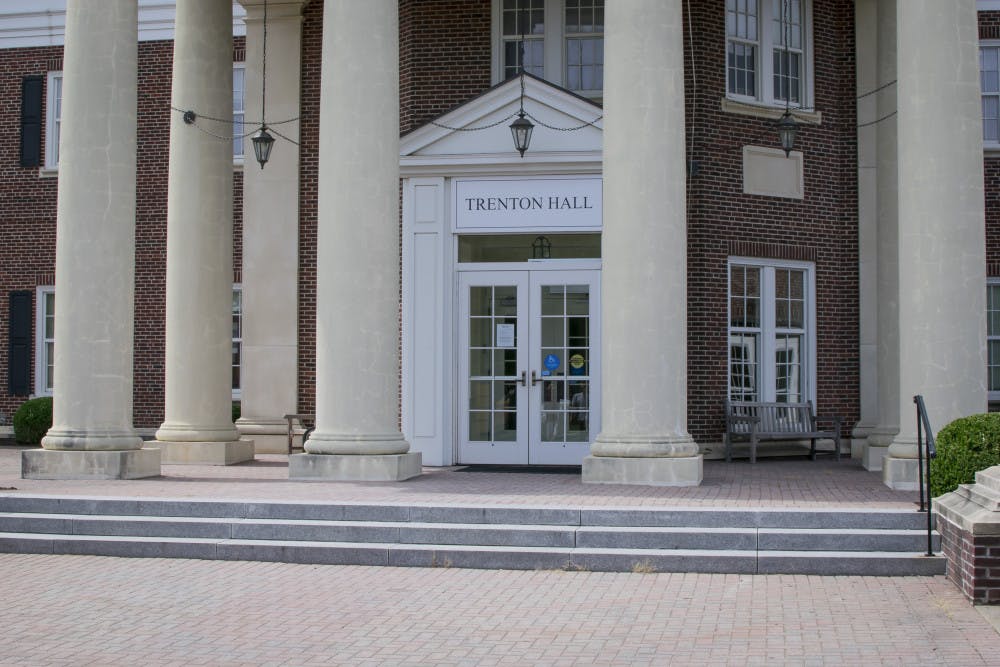By Elizabeth Zakaim
I never considered myself directly invested in the outcome of our student protesters’ efforts to change the name of Paul Loser Hall. I walked past the flyers, posted strategically around campus, rather nonchalantly during the months leading up to the sit-in. I admired from afar the zeal of my fellow students and their ultimate success at getting the name changed.
It was only after the name change that I realized how hard it is to distance a name from its origins, and how even the building’s new name still strays far from the sensitive issues that once burdened the College’s student protesters.

Trenton Hall. My first thought was that it was an apt name. It connected the school with its former namesake, and with the city that we have grown quite involved with through Bonner and other programming.
My interest was further sparked when I was made aware of an additional fact about Trenton from another student and then decided to conduct additional research. The city was named after William Trent, a 17th century merchant from the Philadelphia area who was actively involved in the African and West Indian slave trade.
My next thought was, “How ironic.” After discovering that Paul Loser reportedly spited the 1944 state supreme court ruling against segregation in the Trenton public school system, students decided to protest in an effort to distance the building from the ideology of racism. The fact that the school named a building after Loser struck a chord with students concerned with equality.
I will note that both acts of discrimination were common practices of each man’s time. Federal law would only finally recognize segregation as illegal in 1954 –– 10 years after New Jersey’s ruling. The slave trade wasn’t abolished until the Slave Trade Act of 1807, and its principles didn’t begin to take effect in the United States until 1808.
These belatedly implemented laws, as well as the building’s name change, only remind students of just how deep racism is embedded in American culture.
Alumnus Tim Osborn (’17), one of the protest leaders, pointed out something critical to me: “The U.S. has many such structures and places named for and honoring people who willingly took part in morally abhorrent practices. This says a lot about the United States.”
And while he agrees that it’s important to make the city’s namesake known, he believes that the name Trenton has been “re-appropriated by the very constituencies that William Trent wronged” in order to represent themselves, not Trent. The city itself is a representation of what Trent’s practices failed to do –– completely eradicate minorities as less than human, nothing but products to be sold on the market.
In that sense, yes, naming the building “William Trent Hall” would perhaps be just as bad. But “Trenton Hall” represents more than just the man the city was named after. It represents the other side of the story; not the merchants, but the slaves themselves.
Perhaps “Trenton Hall” only rings a rather rusty distant bell to the early days of racism in comparison with “Loser Hall’s” sharper knell.
But to me, a name like “Admissions Hall” would have been a safer bet.







